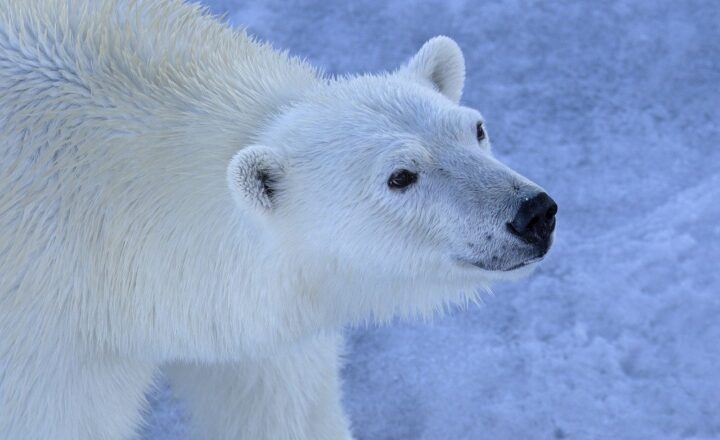The Influence of Ocean Temperature on Marine Life and Coral Reefs
November 14, 2024

The ocean, covering more than 70% of the Earth’s surface, profoundly influences climate, weather patterns, and, most importantly, marine ecosystems. Among the elements that can alter marine habitats, ocean temperature plays a critical role in shaping the biodiversity of these environments. As global temperatures continue to rise due to climate change, ocean temperatures are also changing, leading to significant impacts on marine life and coral reefs.
1. Understanding Ocean Temperature and Its Importance
Ocean temperature is influenced by various factors, including geographic location, seasonal variations, and climatic conditions. The temperature of ocean waters affects the distribution of marine species, as different species thrive in specific temperature ranges.
Temperature variations can affect marine life in the following ways:
- Metabolism and Growth: Temperature directly influences the metabolic rates of marine organisms. Warmer waters can accelerate growth rates in some species, while others may struggle to cope with the changing conditions.
- Reproduction: Many marine species have specific temperature requirements for reproduction. Changes in temperature can result in shifts in breeding seasons or failure to reproduce altogether.
- Habitat Explorations: As temperatures rise, many marine species are migrating to cooler waters, usually toward the poles. This shift can lead to disruptions in local ecosystems and affect predator-prey relationships.
Understanding these dynamics is crucial, especially for the preservation of biodiversity in the face of climate change.
2. The Impact of Rising Ocean Temperatures on Coral Reefs
Coral reefs, often referred to as the “rainforests of the sea”, support an incredible diversity of marine life. These complex ecosystems depend on a delicate balance of temperature, light, and nutrient availability. As ocean temperatures rise, coral reefs face several challenges:
- Coral Bleaching: When water temperatures exceed the normal range, corals expel the symbiotic algae (zooxanthellae) living in their tissues. This process, known as coral bleaching, deprives corals of their color and their primary source of energy, leading to increased mortality rates and diminished reef health.
- Altered Species Composition: Some species of coral are more resilient to temperature changes, while others are not. Warmer temperatures can shift coral dominance from robust species to those that are less resilient, resulting in less diverse and less functional ecosystems.
- Diminished Fish Populations: Coral reefs provide essential habitat for numerous fish species. As reef health declines due to temperature changes, the fish populations that depend on healthy reefs for shelter and food also decline, leading to reduced biodiversity and fishing opportunities for local communities.
The plight of coral reefs serves as a stark reminder of the interconnectedness of ocean health and climate change.
3. The Effects on Marine Biodiversity
The impact of rising ocean temperatures extends beyond coral reefs, affecting various marine life forms, including:
- Fish Species: Many fish species, including commercially important ones, are migrating to cooler waters, altering fishing patterns and threatening food security for communities relying on these fish stocks.
- Plankton: As the foundation of the marine food web, plankton are highly sensitive to temperature changes. Warmer waters can affect their distribution, impacting species that depend on plankton for food, including fish, whales, and seabirds.
- Marine Mammals: Species like seals, sea lions, and polar bears are also impacted as their feeding grounds shift. Warmer temperatures can lead to less ice coverage, which affects their hunting and breeding habits.
Marine biodiversity is at risk as species struggle to adapt to rapidly changing conditions, leading to shifts in ecosystems and potential extinction of vulnerable species.
4. Conservation Efforts and the Future
In response to the alarming impacts of rising ocean temperatures on marine life and coral reefs, various conservation initiatives are underway:
- Marine Protected Areas (MPAs): Establishing MPAs aids in the recovery and protection of vulnerable species and habitats from human impacts, such as overfishing and pollution. MPAs also provide areas where ecosystems can adapt to climate change without additional stressors.
- Restoration Projects: Coral restoration efforts, including coral farming and transplantation, are being initiated in many regions to restore degraded reefs and enhance their resilience to temperature changes.
- Research and Monitoring: Ongoing research helps scientists understand the specific mechanisms through which temperature affects marine ecosystems and how best to mitigate these impacts through conservation strategies.
Climate change poses a significant challenge, but through collaborative global efforts, there is hope for preserving marine biodiversity.
Conclusion
The influence of ocean temperature on marine life is profound and multi-faceted. As global temperatures continue to rise due to climate change, it is crucial to understand the implications for marine ecosystems and coral reefs. The urgent need for conservation and proactive measures is more important than ever to safeguard the biodiversity that thrives beneath the waves. By preserving and restoring marine ecosystems, we can not only protect the richness of life in the ocean but also ensure the resilience of these systems against future changes.
This collective action gives us a chance to mitigate the effects of climate change and promote a healthier ocean for generations to come.







